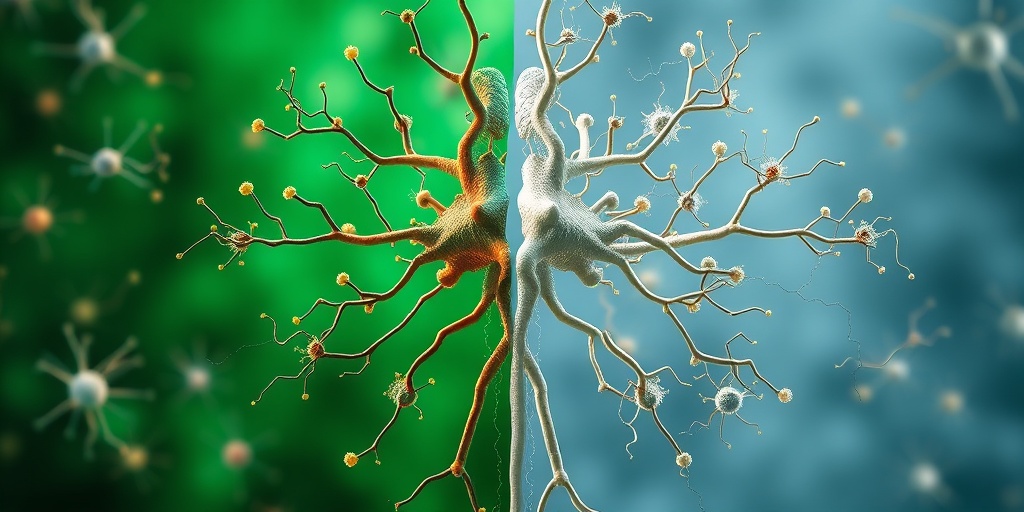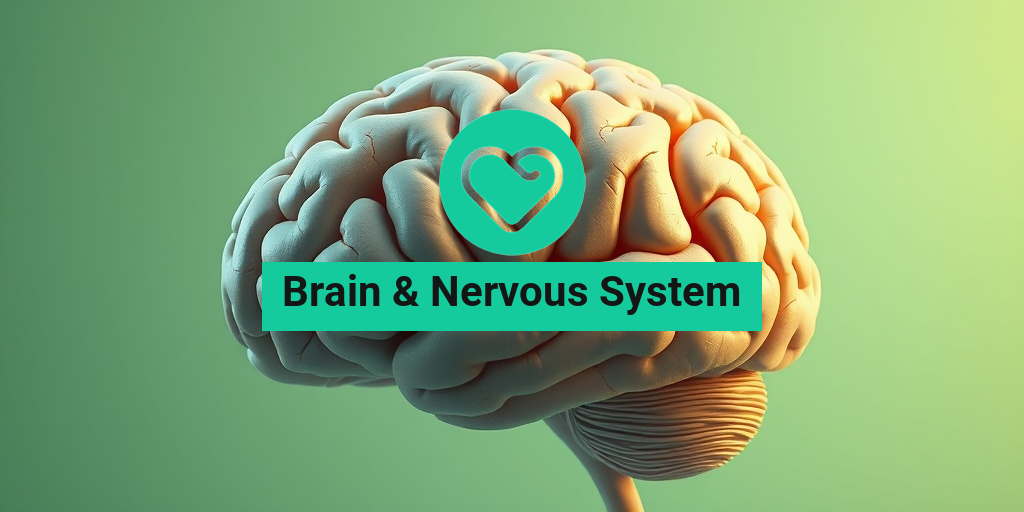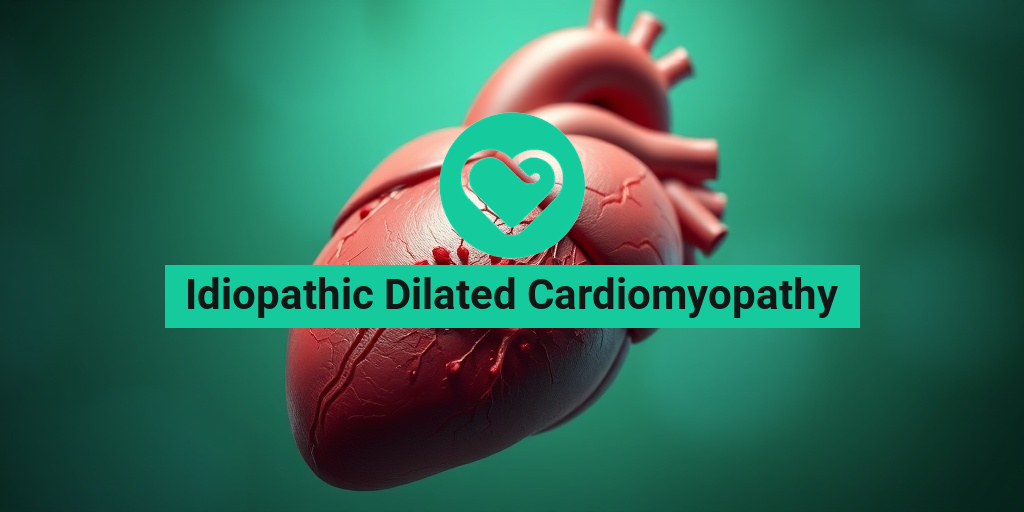What Is the Brain?
The brain is one of the most complex and vital organs in the human body. It serves as the control center for our thoughts, emotions, movements, and bodily functions. Weighing about 3 pounds, the brain is composed of approximately 86 billion neurons, which communicate through trillions of connections known as synapses. This intricate network allows us to process information, learn new skills, and adapt to our environment.
The Structure of the Brain
The brain is divided into several key parts, each responsible for different functions:
- Cerebrum: The largest part of the brain, responsible for higher brain functions such as thought, action, and emotion.
- Cerebellum: Located at the back of the brain, it coordinates movement and balance.
- Brainstem: This connects the brain to the spinal cord and controls basic life functions such as breathing and heart rate.
- Limbic System: Often referred to as the emotional brain, it plays a crucial role in emotions, memory, and motivation.
How the Brain Works
The brain operates through a combination of electrical impulses and chemical signals. Neurons communicate with each other through neurotransmitters, which are chemicals that transmit signals across synapses. This communication is essential for everything from reflexes to complex decision-making.
Understanding the brain’s functions can help us recognize conditions such as brain fog, which refers to a temporary state of mental cloudiness or confusion. Factors like stress, lack of sleep, and poor nutrition can contribute to this phenomenon, impacting our daily lives.
Nervous System Overview
The nervous system is a vast network that connects the brain and spinal cord to the rest of the body. It is divided into two main parts: the central nervous system (CNS) and the peripheral nervous system (PNS).
Central Nervous System (CNS)
The CNS consists of the brain and spinal cord. It is responsible for processing information and coordinating responses. The brain interprets sensory information and sends signals to the spinal cord, which then relays these signals to the body. This system is crucial for reflex actions, such as pulling your hand away from a hot surface.
Peripheral Nervous System (PNS)
The PNS connects the CNS to the limbs and organs. It is further divided into:
- Somatic Nervous System: Controls voluntary movements and transmits sensory information to the CNS.
- Autonomic Nervous System: Regulates involuntary functions such as heart rate, digestion, and respiratory rate. It is further divided into the sympathetic and parasympathetic systems, which manage the body’s fight-or-flight response and rest-and-digest functions, respectively.
Common Nervous System Disorders
Understanding the nervous system is essential for recognizing various disorders that can affect it. Some common conditions include:
- Brain Tumor Symptoms: These can vary widely but may include headaches, seizures, and changes in vision or speech.
- Brain Aneurysm: A bulge in a blood vessel in the brain that can lead to serious complications if it ruptures.
- Brain Hemorrhage: This occurs when there is bleeding in or around the brain, often due to injury or high blood pressure.
- Brain Eating Amoeba: A rare but deadly infection caused by a single-celled organism that can enter the body through the nose.
For those seeking more information on brain health and the nervous system, resources like Yesil Health AI (yesilhealth.com) offer evidence-based answers to your health questions.
In conclusion, the brain and nervous system are integral to our overall health and well-being. By understanding their functions and potential disorders, we can take proactive steps to maintain our cognitive health and improve our quality of life. 🧠✨

Brain Functions Explained
The brain is an incredibly complex organ that serves as the control center for the entire body. It is responsible for a myriad of functions that are essential for our daily lives. Understanding how the brain works can help us appreciate its role in our overall health and well-being. Let’s dive into some of the key functions of the brain.
1. Cognitive Functions
Cognitive functions encompass a range of mental processes that include:
- Memory: The brain stores and retrieves information, allowing us to learn from past experiences.
- Attention: It helps us focus on specific tasks while filtering out distractions.
- Language: The brain enables us to communicate effectively through spoken and written words.
- Problem-Solving: It allows us to analyze situations and make decisions based on logic and reasoning.
These cognitive functions are crucial for our daily interactions and decision-making processes. When we experience issues like brain fog, it can significantly impact our ability to think clearly and perform tasks efficiently. 🧠✨
2. Emotional Regulation
The brain plays a vital role in regulating our emotions. It processes feelings such as happiness, sadness, anger, and fear. The limbic system, which includes structures like the amygdala and hippocampus, is particularly important for emotional responses. Understanding how our emotions are processed can help us manage stress and improve our mental health.
3. Motor Control
Another essential function of the brain is controlling voluntary and involuntary movements. The motor cortex, located in the frontal lobe, sends signals to muscles throughout the body, enabling us to perform actions like walking, writing, and even dancing! 🕺
4. Sensory Processing
The brain receives and interprets sensory information from our environment. This includes:
- Vision: The occipital lobe processes visual stimuli, allowing us to see and interpret our surroundings.
- Hearing: The temporal lobe is responsible for processing auditory information.
- Taste and Smell: The brain integrates signals from taste buds and olfactory receptors to create our perception of flavor and scent.
These sensory functions are crucial for our interaction with the world, helping us navigate our environment safely and effectively.
5. Homeostasis
The brain also plays a critical role in maintaining homeostasis, which is the body’s ability to maintain a stable internal environment. It regulates functions such as:
- Temperature: The hypothalamus helps control body temperature.
- Hunger and Thirst: The brain monitors energy levels and hydration needs.
- Sleep-Wake Cycle: The brain regulates our sleep patterns through various neurotransmitters.
By maintaining homeostasis, the brain ensures that our body functions optimally, contributing to our overall health.
Nervous System Disorders
The nervous system is a complex network that includes the brain, spinal cord, and peripheral nerves. When this system is disrupted, it can lead to various disorders that affect our health and quality of life. Here are some common nervous system disorders:
1. Brain Tumors
Brain tumors can be benign (non-cancerous) or malignant (cancerous) and can cause a range of symptoms depending on their size and location. Common symptoms include:
- Headaches
- Nausea and vomiting
- Seizures
- Changes in vision or hearing
If you experience any of these symptoms, it’s essential to consult a healthcare professional for evaluation. 🩺
2. Brain Aneurysm
A brain aneurysm occurs when a blood vessel in the brain weakens and bulges. This condition can lead to serious complications, including hemorrhage. Symptoms may include:
- Sudden severe headache
- Nausea
- Vision changes
- Seizures
Prompt medical attention is crucial for managing this condition effectively.
3. Brain Hemorrhage
A brain hemorrhage refers to bleeding in or around the brain, often caused by trauma or high blood pressure. Symptoms can vary widely but may include:
- Severe headache
- Weakness or numbness
- Difficulty speaking
- Loss of consciousness
Immediate medical intervention is necessary to reduce the risk of long-term damage.
4. Neurodegenerative Diseases
Conditions such as Alzheimer’s disease, Parkinson’s disease, and multiple sclerosis fall under this category. These disorders lead to the progressive degeneration of nerve cells, impacting cognitive and motor functions. Early signs may include:
- Memory loss
- Difficulty with coordination
- Changes in mood or behavior
Understanding these disorders can help in early detection and management, improving the quality of life for those affected.
In conclusion, the brain and nervous system are integral to our overall health. By understanding their functions and the disorders that can affect them, we can take proactive steps to maintain our brain health and seek timely medical care when necessary. 🧠❤️

Brain Health Tips
Maintaining a healthy brain is crucial for overall well-being. The brain is the control center of our body, influencing everything from our thoughts and emotions to our physical movements. Here are some effective tips to enhance your brain health:
1. Stay Mentally Active 🧠
Just like any other muscle in your body, your brain needs exercise to stay strong. Engage in activities that challenge your mind, such as:
- Solving puzzles and brain teasers
- Learning a new language
- Playing musical instruments
- Reading books or articles on diverse topics
These activities stimulate neural connections and can help reduce the risk of cognitive decline.
2. Eat a Brain-Healthy Diet 🥗
Your diet plays a significant role in brain health. Incorporate foods rich in antioxidants, healthy fats, vitamins, and minerals. Some brain-boosting foods include:
- Fatty fish (rich in omega-3 fatty acids)
- Berries (high in antioxidants)
- Nuts and seeds (great sources of vitamin E)
- Leafy greens (packed with nutrients)
These foods can help improve memory and cognitive function while reducing the risk of brain-related diseases.
3. Get Regular Exercise 🏃♂️
Physical activity is not just good for your body; it’s also beneficial for your brain. Regular exercise increases blood flow to the brain, which can help improve memory and cognitive function. Aim for at least 150 minutes of moderate aerobic activity each week, such as:
- Walking
- Swimming
- Cycling
Incorporating strength training exercises can also be beneficial for overall brain health.
4. Prioritize Sleep 😴
Quality sleep is essential for brain health. During sleep, your brain consolidates memories and clears out toxins. Aim for 7-9 hours of quality sleep each night. To improve your sleep quality:
- Establish a regular sleep schedule
- Create a relaxing bedtime routine
- Avoid screens before bedtime
Good sleep hygiene can significantly enhance your cognitive function and emotional well-being.
5. Manage Stress Effectively 🌿
Chronic stress can have detrimental effects on your brain health. It can lead to issues like brain fog and even contribute to more severe conditions. To manage stress:
- Practice mindfulness or meditation
- Engage in yoga or tai chi
- Spend time in nature
Finding healthy ways to cope with stress can help protect your brain and improve your overall mental health.
Nervous System Symptoms
The nervous system is a complex network that controls everything from voluntary movements to involuntary functions like breathing and heart rate. Understanding the symptoms of nervous system disorders is crucial for early detection and treatment. Here are some common symptoms to be aware of:
1. Numbness or Tingling
Experiencing numbness or tingling sensations, often referred to as paresthesia, can indicate nerve damage or compression. This symptom can occur in various parts of the body and may be temporary or chronic.
2. Muscle Weakness 💪
Unexplained muscle weakness can be a sign of a nervous system issue. If you find it difficult to perform everyday tasks or notice a decline in your strength, it’s essential to consult a healthcare professional.
3. Coordination Problems
Difficulty with coordination or balance can indicate a problem with the nervous system. This may manifest as stumbling, difficulty walking, or trouble with fine motor skills.
4. Memory Issues 🧠
Memory problems, including forgetfulness or difficulty concentrating, can be linked to various nervous system disorders. If you notice significant changes in your cognitive abilities, it’s important to seek medical advice.
5. Changes in Sensation
Changes in how you perceive sensations, such as heightened sensitivity to touch or pain, can be a symptom of nerve damage or dysfunction. This can affect your quality of life and should be evaluated by a healthcare provider.
Being aware of these symptoms can help you take proactive steps toward maintaining your brain and nervous system health. If you experience any of these symptoms persistently, don’t hesitate to reach out to a healthcare professional for further evaluation and guidance.

Diagnosis of Brain Conditions
Diagnosing brain conditions is a complex process that requires a thorough understanding of the brain and nervous system. With advancements in medical technology, healthcare professionals can now utilize a variety of diagnostic tools to identify issues effectively. Here, we will explore the common methods used in diagnosing brain conditions, the importance of early detection, and what you can expect during the diagnostic process.
Common Diagnostic Tools
When it comes to diagnosing brain conditions, several tools and techniques are commonly employed:
- Magnetic Resonance Imaging (MRI): This imaging technique provides detailed images of the brain’s structure, helping to identify tumors, lesions, or other abnormalities.
- Computed Tomography (CT) Scan: A CT scan uses X-rays to create cross-sectional images of the brain, which can help detect bleeding, swelling, or structural changes.
- Electroencephalogram (EEG): An EEG measures electrical activity in the brain and is often used to diagnose conditions like epilepsy or sleep disorders.
- Blood Tests: Certain blood tests can help rule out infections, inflammation, or metabolic issues that may affect brain function.
- Cerebrospinal Fluid Analysis: A lumbar puncture can be performed to analyze the cerebrospinal fluid, which can provide insights into infections or neurological disorders.
Importance of Early Detection
Early detection of brain conditions can significantly improve treatment outcomes. Conditions such as brain tumors or brain aneurysms can progress rapidly, making timely diagnosis crucial. Symptoms like persistent headaches, changes in vision, or sudden confusion should never be ignored. If you or someone you know is experiencing these symptoms, seeking medical attention promptly can lead to better management of the condition.
What to Expect During the Diagnostic Process
When you visit a healthcare provider for a suspected brain condition, they will typically start with a comprehensive medical history and physical examination. Here’s what you can expect:
- Medical History: Be prepared to discuss your symptoms, family history of neurological disorders, and any medications you are currently taking.
- Physical Examination: The doctor may perform a neurological exam to assess your reflexes, coordination, and cognitive function.
- Diagnostic Tests: Depending on your symptoms, the doctor may recommend one or more of the diagnostic tests mentioned above.
Understanding the diagnostic process can help alleviate anxiety and prepare you for what lies ahead. Remember, the goal is to pinpoint the issue accurately so that appropriate treatment can be initiated.
Treatment Options for Nervous Disorders
Treatment for nervous disorders varies widely depending on the specific condition, its severity, and the individual’s overall health. The brain and nervous system are intricate, and thus, treatment plans are often tailored to meet the unique needs of each patient. Here, we will discuss various treatment options available for nervous disorders.
Medications
Medications are often the first line of treatment for many nervous disorders. Common types of medications include:
- Antidepressants: These are used to treat conditions like depression and anxiety, which can affect brain function.
- Antipsychotics: These medications can help manage symptoms of severe mental health disorders.
- Anticonvulsants: Often prescribed for epilepsy, these medications help control seizures.
- Stimulants: Used primarily for attention deficit hyperactivity disorder (ADHD), stimulants can enhance focus and attention.
Therapies
In addition to medications, various therapies can be beneficial in managing nervous disorders:
- Cognitive Behavioral Therapy (CBT): This form of therapy helps individuals identify and change negative thought patterns and behaviors.
- Physical Therapy: For conditions affecting motor skills, physical therapy can help improve strength and coordination.
- Occupational Therapy: This therapy focuses on helping individuals regain the skills needed for daily living and work.
Lifestyle Changes
Incorporating healthy lifestyle changes can also play a significant role in managing nervous disorders. Consider the following:
- Regular Exercise: Physical activity can boost mood and improve overall brain health.
- Balanced Diet: A diet rich in omega-3 fatty acids, antioxidants, and vitamins can support brain function.
- Stress Management: Techniques such as mindfulness, meditation, and yoga can help reduce stress and anxiety.
Understanding the treatment options available for nervous disorders empowers individuals to take an active role in their health. Always consult with a healthcare professional to determine the best course of action tailored to your specific needs. 🧠✨

Frequently Asked Questions about the Brain & Nervous System
What is the Brain & Nervous System?
The Brain & Nervous System is a complex network that controls and coordinates all bodily functions. It includes the brain, spinal cord, and peripheral nerves, playing a crucial role in processing information and responding to stimuli.
What are common symptoms of brain-related issues?
- Brain fog: A feeling of mental cloudiness or confusion.
- Brain tumor symptoms: Headaches, seizures, and changes in vision or speech.
- Brain hemorrhage: Sudden severe headache, nausea, and loss of consciousness.
How can I improve my brain health?
To enhance your Brain & Nervous System health, consider the following:
- Engage in regular physical exercise 🏃♂️.
- Maintain a balanced diet rich in antioxidants and omega-3 fatty acids.
- Get adequate sleep to support cognitive functions.
- Challenge your brain with puzzles and brain teasers 🧩.
What is brain drain and how does it affect society?
Brain drain refers to the emigration of highly skilled or educated individuals from one country to another, often leading to a shortage of talent in the home country. This can impact economic growth and innovation.
What are the signs of a brain aneurysm?
Signs of a brain aneurysm may include:
- Sudden severe headache, often described as a “thunderclap.”
- Nausea and vomiting.
- Vision changes or double vision.
- Seizures.
Can brain-eating amoeba affect the nervous system?
Yes, the brain-eating amoeba (Naegleria fowleri) can cause a rare but severe infection known as primary amoebic meningoencephalitis (PAM), which affects the brain and nervous system, leading to serious health complications.
How does stress impact the brain?
Chronic stress can have detrimental effects on the Brain & Nervous System, leading to issues such as memory problems, anxiety, and even physical changes in brain structure over time.
What are some effective ways to manage brain fog?
To combat brain fog, try the following strategies:
- Stay hydrated 💧.
- Limit sugar and processed foods.
- Practice mindfulness and meditation.
- Engage in regular mental exercises.
When should I see a doctor about brain health?
If you experience persistent symptoms such as severe headaches, memory loss, or changes in mood or behavior, it is important to consult a healthcare professional for a thorough evaluation of your Brain & Nervous System health.




